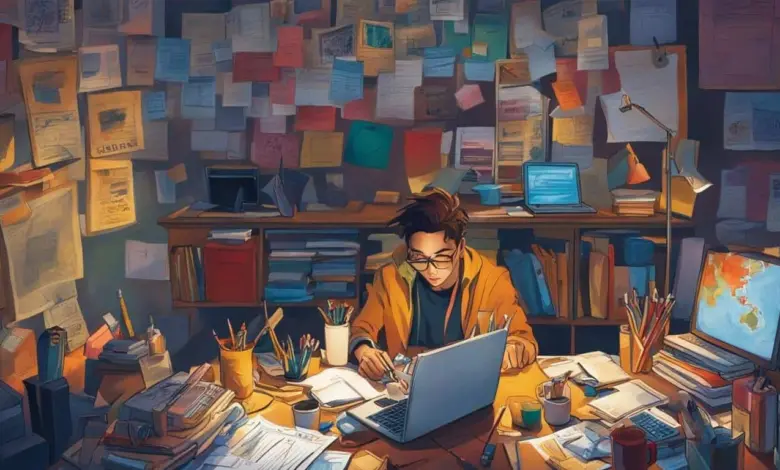The Psychology of Procrastination: Why We Put Off Dealing with Blocked Drains

We’ve all been there: faced with a task we know we should tackle but somehow find ourselves putting it off until the last minute. Procrastination is a common phenomenon that affects people in various aspects of their lives, from work assignments to household chores. In this blog post, we’ll explore the psychology behind procrastination, specifically in the context of dealing with blocked drains. By understanding the underlying reasons why we procrastinate, we can better equip ourselves to overcome this tendency and address drain problems more effectively.
Understanding Procrastination
Procrastination, simply put, is the act of delaying or postponing tasks that need to be completed. While it’s a behaviour that many of us are familiar with, the reasons behind why we procrastinate can vary widely. Some common factors that contribute to procrastination include fear of failure, discomfort with the task itself, and a tendency to prioritise short-term pleasure over long-term benefits. Additionally, the concept of “temporal discounting” plays a significant role in procrastination, where we place less value on future rewards compared to immediate gratification.
Psychological Barriers to Dealing with Blocked Drains
When it comes to dealing with blocked drains, several psychological barriers can hinder our ability to take action. One such barrier is the fear of failure or making the problem worse. The thought of attempting to unclog a drain and potentially causing damage to the plumbing system can be daunting, leading us to procrastinate in dealing with the issue altogether. Similarly, the discomfort associated with the task itself, such as handling dirty water or using unfamiliar tools, can also deter us from taking action. Additionally, we may overestimate the time and effort required to address the problem, further contributing to our procrastination. Know that the best solution is to hire professionals so you don’t have to deal with all the hassle. For example, check out fsgroup.co.uk.
Impact of Procrastination on Drain Problems
The consequences of procrastinating in dealing with blocked drains can be significant. By delaying action, we allow the blockage to worsen over time, potentially leading to more severe plumbing issues and costly repairs down the line. Moreover, blocked drains can create unsanitary conditions in the home, posing health risks to occupants. Therefore, addressing drain problems promptly is not only essential for the maintenance of your plumbing system but also for ensuring a safe and healthy living environment.
Avoiding the Temptation of DIY Methods
At first glance, the bills for drainage services can seem costly. This is compared to seeing the price of drain cleaning products on the shelves at your local store. You may think to yourself, what’s the real difference? Why can’t I clear the blockage by myself?
In some cases, you can do so with the right tools. For example, drain snakes can be used to break up a minor blockage. Alternatively, you can use baking soda, vinegar, and hot water to clean the pipes. However, when you have a bigger problem, and water isn’t draining correctly, you shouldn’t be tempted to reach for chemical drain cleaners. While they seem cheap, they come with their own costs.
The Hazards of Chemical Cleaners
If you’ve ever looked at a cleaner drain cleaner bottle, the design and statements convince you they’ll work. They promise to blast away the blockage, clean the pipes and get rid of odours simultaneously. However, if you examine the bottle carefully, you’ll also realise there are various chemical warnings. This is something that you may brush over, however, it demonstrates just how damaging the chemicals can be in this product.
These strong chemicals can be corrosive on PVC and older pipes. They burn materials, which leads to weakening over time. You risk damaging them completely and having to get the system replaced. What’s more, mixing together different chemicals has a risk of creating toxic fumes in your home. This puts you and your family in danger. You also need to ensure you don’t get the chemicals on your skin, as it can burn.
Let’s not forget another element of chemical drain cleaners. Many of them don’t work. They often disguise the odour of the blockage temporarily, but they’re incapable of dissolving the debris if it’s significant. So, all you’ve gained is false hopes and wasted your money on a product that doesn’t work.
How Drain Jetting Works
Let’s compare this to drain jetting, which uses high-pressure water. This action breaks away debris, and once it’s in small pieces, it can pass through the pipes and no longer cause a blockage. No chemicals threaten the pipes’ integrity, yet grease and debris are removed effectively due to the high pressure.
This isn’t a task you can do yourself. You need experts who have training and experience in order to clear the blockage. They also have the right equipment for drain jetting, which can be expensive. Therefore, using their services is more cost-effective, and you can ensure that you’re protecting your home.
Read also: Maximizing Sound Quality: Exploring Baffles Acoustiques in Modern Design
Conclusion
Procrastination can hinder our ability to address drain problems effectively, leading to more significant issues and costly repairs. By understanding the psychological barriers that contribute to procrastination and employing strategies to overcome them, we can take proactive steps to tackle drain blockages promptly and maintain a smoothly functioning plumbing system. Whether it’s breaking the task down into smaller steps, setting specific goals and deadlines, or seeking support from professionals, addressing drain problems promptly is essential for the well-being



